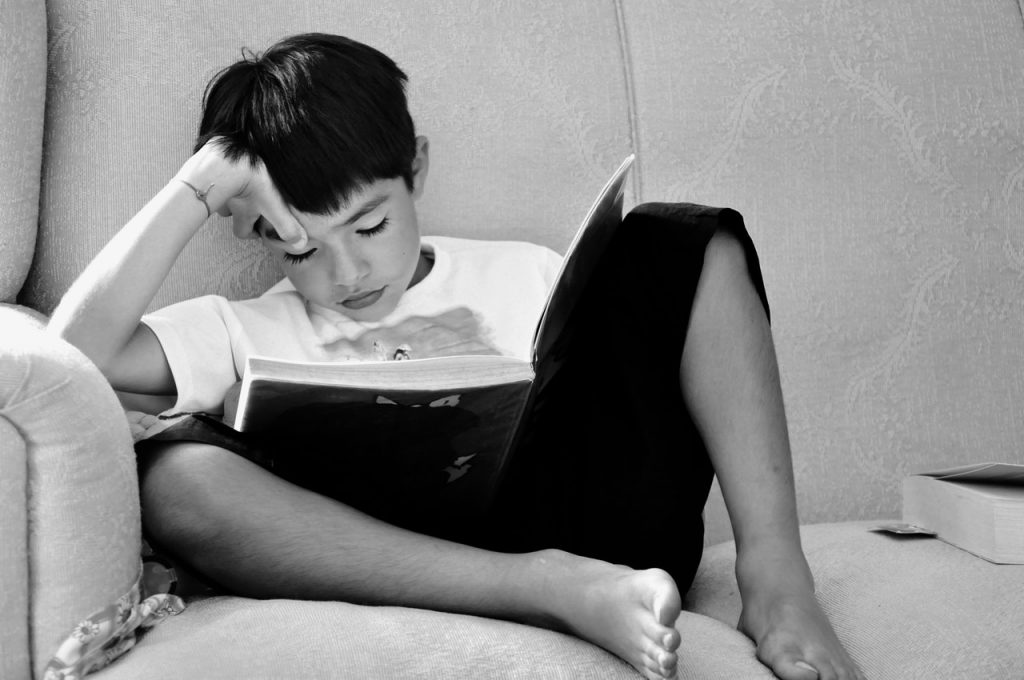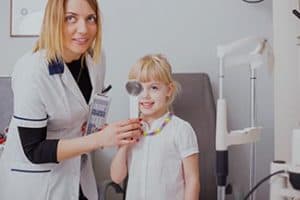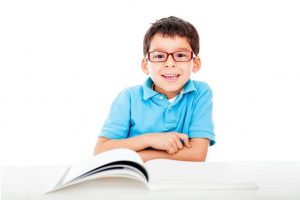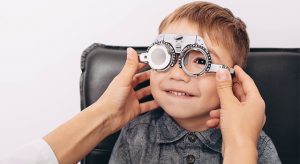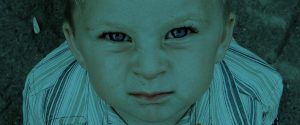An estimated 25% of children have an undetected vision problem holding them back at school or while playing sports.
Kids can be quite vocal when they’re bored, hungry or just plain tired. Yet when it comes to vision problems, such as difficulty seeing the words on the blackboard or blurry-looking words in their book, they may be less likely to speak up.
Given that visual learning accounts for around 80% of learning, poor vision may lead to poor academic performance, low-self esteem and behavioral problems, such as procrastinating or making excuses for tackling homework.
Importance of a comprehensive eye exam
There’s a lot more to vision than how well you can see from a distance of 20 feet.
There are 17 visual skills that children need in order to read, write, do math, and enjoy athletic success.
Any problems with these visual skills can lead to poor academic and athletic performance.
A comprehensive eye exam is the most effective way to rule out any visual issues that may be impeding your child’s progress.
An eye doctor will not only determine your child’s prescription for glasses or contact lenses during a thorough eye exam, but will also check their eyes for common eye diseases, analyze how their eyes work together as a team, and evaluate their eyes as an indicator of their overall health.
Schedule an eye exam with an eye doctor near you, to check your child’s vision.
SEE RELATED: Eye Exams for Children
20 signs your child needs vision therapy
If your child is having trouble keeping up with their friends in class or on the sports field, their visual skills may be subpar.
Any of the 20 symptoms listed below could suggest that your child has a vision problem which could be remediated with vision therapy:
- Headaches
- Blurred vision
- Double vision
- Eye strain or fatigue
- Difficulty copying text
- Sensitivity to bright light
- Losing place while reading
- Poor eye-hand coordination
- Drifting or turning of one eye
- Difficulty maintaining attention
- Closing one eye while reading
- Excessive blinking or squinting
- Seeing words floating on the page
- Reduced reading speed or fluency
- Turning or tilting head while reading
- Difficulty with reading comprehension
- Frequently falling or bumping into objects
- Misjudging distances while moving in space
- Skipping words or lines of text while reading
- Bringing text close to or far away from eyes to improve clarity
What to do next?
The first step in diagnosing a vision problem is to keep an eye out for telltale behaviors and symptoms.
The next step is to schedule an appointment with your child’s eye doctor, who will evaluate their functional vision. Your child may benefit substantially from eye glasses if a refractive error is diagnosed, such as myopia, hyperopia or astigmatism.
Eyeglasses may also be prescribed to support a child’s focusing difficulties, these are often referred to as ‘low plus lenses’.
Vision therapy may be recommended by the eye doctor to improve a child’s vision skills, including eye tracking, convergence or visual processing.
How can vision therapy help?
Vision therapy is a specialized and personalized program that aims to strengthen the visual skills needed for academic and athletic success. The visual skills are improved by enhancing the communication between the eyes and the brain.
Each vision therapy program is tailored to the patient’s specific needs and may include lenses, prisms, occluders, filters and other equipment.
LEARN MORE: Guide to Children’s Eye Exams
Schedule an evaluation with an eye doctor near you, to find out if your child can benefit from vision therapy.
A child’s vision accounts for around 80% of learning and any visual problems may lead to reduced academic performance, low-self esteem and behavioral problems.
Your eye doctor can detect any underlying visual issues that may change your child’s life.
